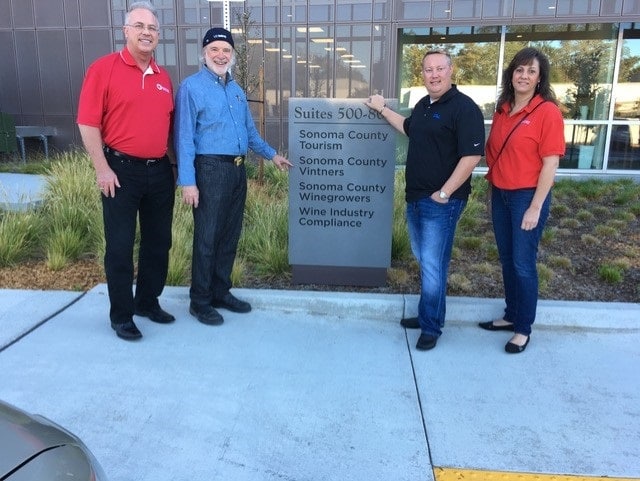It’s fair to say that until he collapsed while training for a marathon, Ron Rubin hadn’t given a lot of thought to the public availability of automated external defibrillators (AED).
A day after running 20 miles to prepare for what would have been his eighth marathon, Ron was knocked flat by an abnormally fast heart rate, a condition known as ventricular tachycardia. This cardiac emergency can only be remedied by trying to shock the heart into a regular rhythm using a defibrillator.
Ron’s son called 9-1-1 and they were transported to the local emergency room where the medical staff sprang into action. They administered shocks using a defibrillator, and this action saved Ron’s life. Not long afterwards, doctors implanted a defibrillator in him to monitor his heart rate and shock him if an abnormal rhythm occurred again.
Two years after Ron’s 2009 cardiac emergency, he bought a winery in Sonoma County, California. Eight years later, local vintners launched a “safe and sustainable” campaign for wineries that required certification. Ron reviewed the list of qualifications, and it occurred to him that the certification’s definition of “safe and sustainable” might be too narrow. For Ron, these two words meant taking care of both the planet and the people who call it home.
“There was an interest in whether people were trained to be safe around winery equipment,” said Ron. “But I was thinking that you have to keep your staff and visitors safe in other ways. Are employees trained in CPR and do you have an AED in your tasting room?”
Ron started speaking to his fellow vintners about safety, probing to see if they had AEDs and staff trained in first aid and CPR at their wineries. “The more people I talked to, the more who told me ‘no,’” Ron continued. “I thought, there is a need.”
Unfortunately, the cost of an AED, generally priced around $1,700, was a hurdle for many wineries. Then Ron connected with the American Red Cross and ZOLL Medical Corporation, which collaborated with him on a program to secure AEDs and offer first aid, CPR and AED training. If a winery qualifies for the TRAINED FOR SAVING LIVES program, it receives a ZOLL AED PLUS and installation at no cost.
As a requirement to get an AED at no cost, the winery must offer Red Cross First Aid/CPR/AED training to its staff. The Red Cross handles the training, which occasionally means being flexible to accommodate the busy harvest season.
More than 280 California wineries have participated in the program since its inception two and a half years ago. The majority of the wineries have installed their AEDs in the tasting rooms, but because the AEDs are portable, some wineries will keep them in the vineyards during peak harvest times so that the lifesaving device is close at hand should a cardiac emergency occur. That’s important because for every minute without CPR and an AED, odds of surviving a cardiac arrest drop by 10 percent.
Ron admits that the reception to the program has been humbling, as he launched it with safety and sustainability in mind, not for accolades. However, he is proud of the Innovator Award bestowed upon him last year by the Sonoma County Vintners Association.
And, while the AEDs that he’s donated have yet to be used in an emergency, they are there with people who are trained to use them should the need arise. “It’s a good way to give back to the community,” said Ron. “What’s more important than to save someone’s life?”
Get Trained to Save Lives
Download the free Red Cross First Aid App and get trained at www.redcross.org/takeaclass to learn lifesaving skills.

